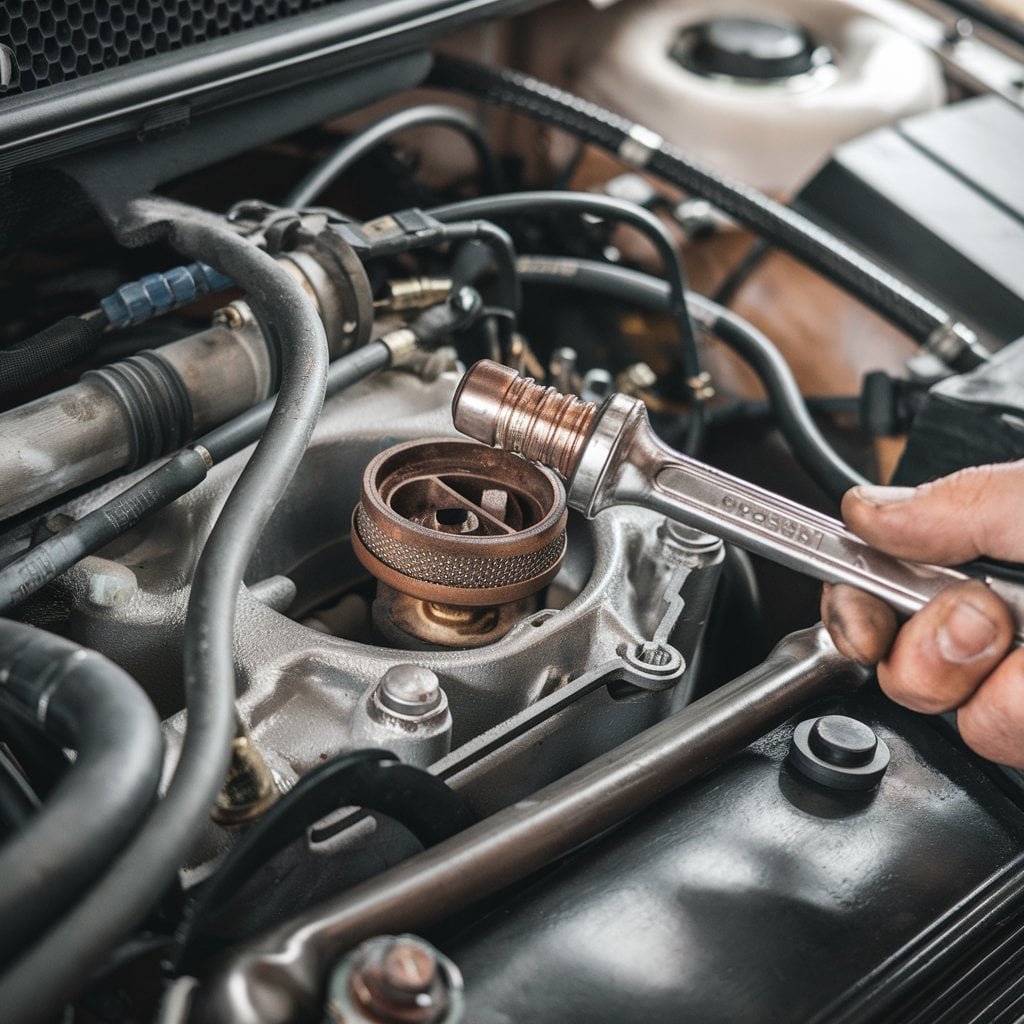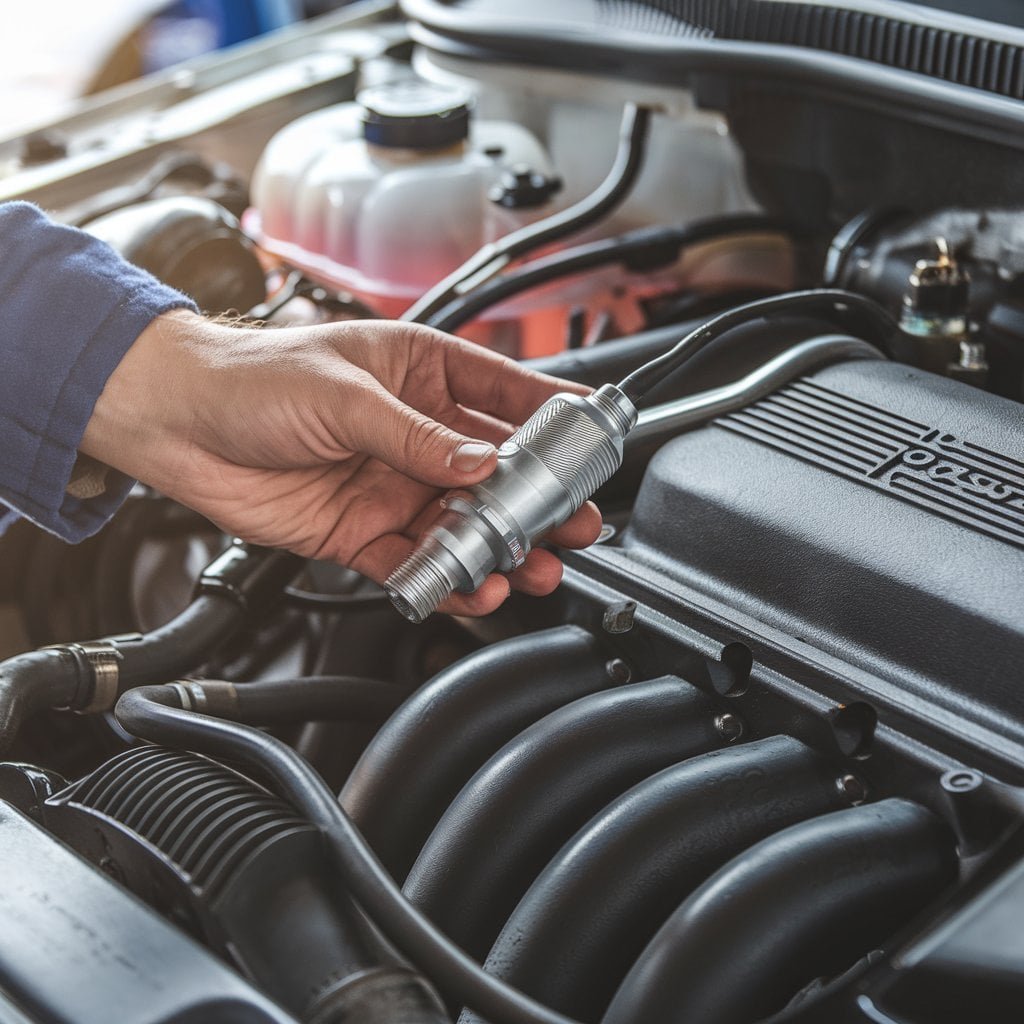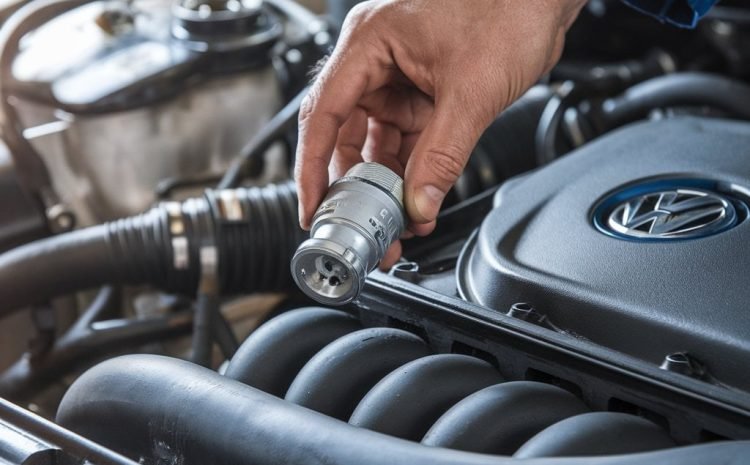Noticing a sudden drop in your VW Passat’s fuel efficiency? Or maybe the check engine light won’t turn off? A failing O2 sensor could be throwing off your engine’s air-fuel ratio, leading to poor mileage, rough idling, and even higher emissions. Ignoring it for too long can damage your catalytic converter, which means an expensive fix down the line. At our Volkswagen repair workshop in Dubai, we provide fast and reliable VW Passat O2 sensor replacement using genuine parts to restore your car’s performance. Plus, for a limited time, get a 15% discount on your replacement. Don’t let a faulty sensor cost you more—book your appointment now!

The O2 sensor, also known as the oxygen sensor, is a critical component in your VW Passat’s exhaust system. Its job is to measure the oxygen levels in exhaust gases and send real-time data to the Engine Control Unit (ECU). This information helps the ECU adjust the air-fuel mixture for optimal combustion, ensuring better fuel efficiency, lower emissions, and smooth engine performance.
Your VW Passat has multiple oxygen sensors that play a crucial role in engine performance, fuel efficiency, and emissions control. These sensors are placed in the exhaust system and communicate with the Engine Control Unit (ECU) to maintain the ideal air-fuel ratio. A faulty O2 sensor can lead to higher fuel consumption, poor acceleration, and check engine light warnings. Here’s a breakdown of the different O2 sensors in the Volkswagen Passat and their functions:
If your VW Passat has a faulty oxygen sensor, it can affect your engine’s performance, fuel economy, and emissions levels. Don’t ignore the warning signs—visit a Volkswagen repair specialist in Dubai for a professional O2 sensor replacement service.
A failing oxygen sensor affects your VW Passat’s fuel efficiency, engine performance, and emissions. Since the O2 sensor helps regulate the air-fuel mixture, any malfunction can lead to serious driving issues. If you notice any of these six warning signs, you may need a VW Passat O2 sensor replacement in Dubai.
A faulty O2 sensor sends incorrect readings to the ECU, causing the check engine light to turn on. If ignored, this could lead to fuel mixture problems, poor performance, or catalytic converter failure.
A damaged oxygen sensor can cause the engine to run too rich, burning excess fuel. If you notice your VW Passat needing refueling more often, it could be due to an incorrect air-to-fuel ratio.
A bad O2 sensor can make the engine struggle at idle, causing it to shake, misfire, or even stall. This happens when the fuel mixture becomes unstable, affecting combustion efficiency.
If your VW Passat hesitates or responds slowly when you press the accelerator, the oxygen sensor may be failing. Poor fuel adjustments lead to delayed throttle response and loss of engine power.
A failing O2 sensor can cause a rich fuel mixture, leading to unburned fuel entering the exhaust. This creates a strong fuel smell or a rotten egg odor, which can damage the catalytic converter.
A malfunctioning oxygen sensor increases harmful emissions, making it difficult to pass Dubai’s RTA emission test. If your car fails the test, an O2 sensor inspection and replacement may be necessary.
Ignoring these six warning signs can lead to engine damage, increased fuel costs, and higher emissions. If your VW Passat is showing any of these symptoms, visit a Volkswagen repair expert in Dubai for a professional VW Passat O2 sensor replacement.

A faulty oxygen sensor can lead to poor fuel economy, engine problems, and high emissions. Many factors can cause damage, making VW Passat O2 sensor replacement necessary. Here are the main reasons:
Ignoring a bad O2 sensor can cause higher fuel costs, engine misfires, and expensive repairs. If your VW Passat has sensor issues, visit a Volkswagen specialist in Dubai for a VW Passat O2 sensor replacement.
A failing oxygen sensor can cause poor fuel efficiency, rough idling, and higher emissions, leading to expensive repairs if ignored. Don’t wait for the check engine light to turn into a bigger issue—schedule your VW Passat O2 sensor replacement in Dubai today. Our Volkswagen specialists use genuine O2 sensors to restore your car’s engine performance and fuel economy. We offer quick service, expert diagnostics, and a 15% discount for a limited time. Call us now or book your VW Passat repair appointment online for fast and reliable service.

The cost of VW Passat O2 sensor replacement in Dubai depends on several factors, including sensor type, labor charges, and model year. A faulty oxygen sensor can affect fuel efficiency, engine performance, and emissions, so replacing it on time is essential.
At our Volkswagen repair workshop in Dubai, we offer professional VW Passat O2 sensor replacement with genuine parts and expert installation. Get a 15% discount for a limited time. Book your appointment today and restore your Passat’s fuel efficiency and engine performance.
Trust our team of Expert Volkswagen Mechanics at our Volkswagen Service Center in Dubai for all your Volkswagen Repair and service needs.
Our Top-Notch Volkswagen Service Center in Dubai have the advanced diagnostic tools and Volkswagen experts to accurately identify and resolve any issues with your Volkswagen.
With over 1200+ Volkswagen repaired, our Volkswagen Service Center in Dubai is the trusted Garage for comprehensive and expert Volkswagen Repair services.
Most of the vehicles get damaged just because of maintenance neglect you take
The VW Passat typically has two to four oxygen sensors, depending on the model year and engine type. Most modern Passat models have one upstream O2 sensor (before the catalytic converter) and one downstream O2 sensor (after the catalytic converter) on each exhaust bank. Turbocharged or V6 models may have additional sensors to monitor exhaust gases more precisely.
Driving with a failing oxygen sensor is possible but not recommended. A faulty O2 sensor can cause the engine to run too rich or too lean, leading to higher fuel consumption, sluggish acceleration, and increased emissions. Prolonged driving with a bad O2 sensor can also damage the catalytic converter, resulting in a much more expensive repair.
The upstream (front) O2 sensor monitors the air-fuel ratio directly from the engine, while the downstream (rear) sensor measures the efficiency of the catalytic converter. If your VW Passat has poor fuel economy, rough idling, or check engine light codes related to fuel mixture, the front O2 sensor may be faulty. If the issue is related to emissions or catalytic converter efficiency, the problem is likely with the rear O2 sensor. A professional VW Passat O2 sensor diagnostic in Dubai can determine which sensor needs replacement.
Common OBD-II codes related to VW Passat oxygen sensor failure include:
In most cases, VW Passat O2 sensor replacement does not require programming. However, the ECU must be reset to clear the check engine light and allow the car’s system to adjust to the new sensor. In some modern Passat models, the ECU may need recalibration to ensure proper fuel mixture calculations.
Replacing the wrong O2 sensor will not fix the issue and may result in continued check engine warnings, poor fuel economy, and engine hesitation. Since the VW Passat has multiple O2 sensors, it’s important to scan for error codes and identify the correct sensor before replacement.
For VW Passat O2 sensor replacement, always use genuine Volkswagen oxygen sensors or high-quality OEM sensors. Cheap aftermarket sensors may not provide accurate readings, leading to engine performance issues and repeated failures.
“Talk to a Volkswagen Expert Now by booking a call, and get personalised solutions for your Volkswagen unique needs and requirements.”
+971564646081
